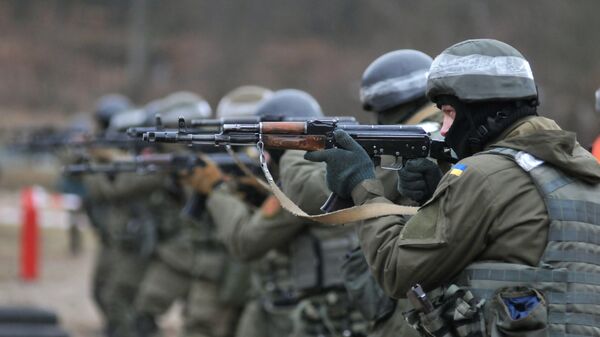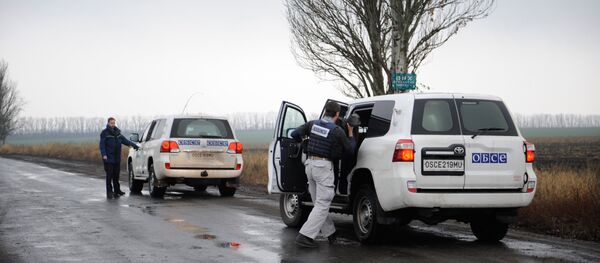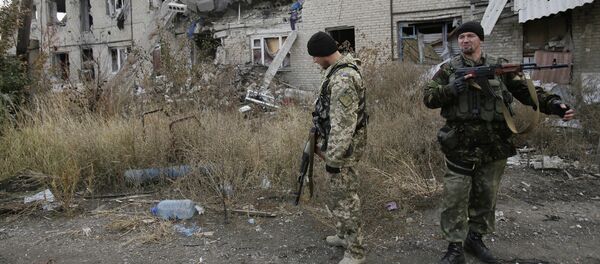In an interview with Defense News this month, vice prime minister for European and Euro-Atlantic integration Ivanna Klympush-Tsintsadze said that Kiev is in desperate need of "defense" weapons.
"In terms of defensive weapons, there are radars that we need to make sure we are protecting our soldiers from attacks. Anti-drone weapons and artillery, anti-tank [weapons], that is something we have to deal with," she said.
"We are, so far, definitely concentrating on defensive weapons, and that is something that helps us to build defense capabilities."
The United States has provided military equipment to Ukraine in the past, including Humvees and small surveillance drones, but has been hesitant to provide more technologically-advanced, aggressively lethal equipment. According to former US Secretary of Defense Chuck Hagel, part of this reasoning lies in the fact that Ukrainian military soldiers may not be sophisticated enough to use the equipment.
But Klympush-Tsintsadze says she is excited to prove to the US, "all the progress that we’ve been showing, what we are achieving…"
"We are not giving up on persuading our partners that lethal weapons would be the answer at some point," she said.
"Ukraine has never been the nation that ever conquered anybody, so even lethal weapons would be something to protect ourselves and make sure we are capable of protecting our land and people."
Ukraine launched a military operation in the country's southeast in April 2014, after local residents refused to recognize the coup in Kiev that toppled then-President Viktor Yanukovych. In February 2015, a peace agreement was signed between Ukraine’s conflicting sides, in the Belarusian capital of Minsk. The deal stipulates a full ceasefire, weapons withdrawal from the line of contact in eastern Ukraine, an all-for-all prisoner exchange, and constitutional reforms which would give a special status to the self-proclaimed Donetsk and Luhansk People’s Republics.
According to Jean-Luc Schaffhauser, a French member of the European Parliament from the Europe of Nations and Freedom Group, Kiev has failed to meet its obligations.
"Today I can objectively say that Kiev is not implementing the Minsk agreements, which include agreements on decentralization and local autonomy in Ukraine," Schaffhauser told RIA Novosti.
"Kiev cannot and does not implement this part of [its] agreements just because, on the one hand, the extremist opposition argues against that, and, on the other hand, one can always blame it on Russia."





